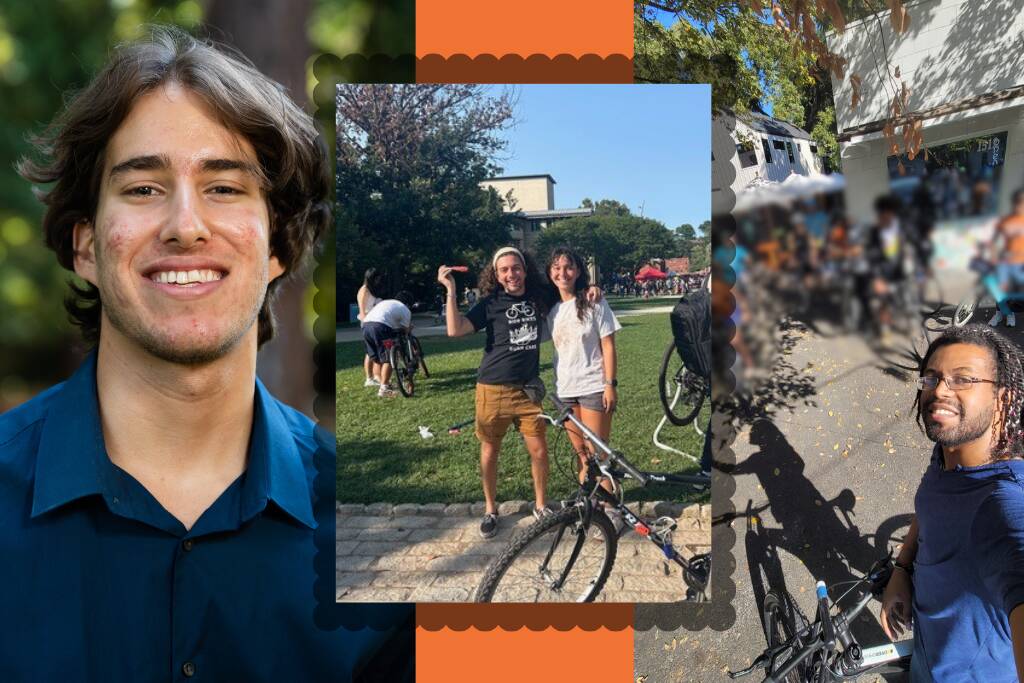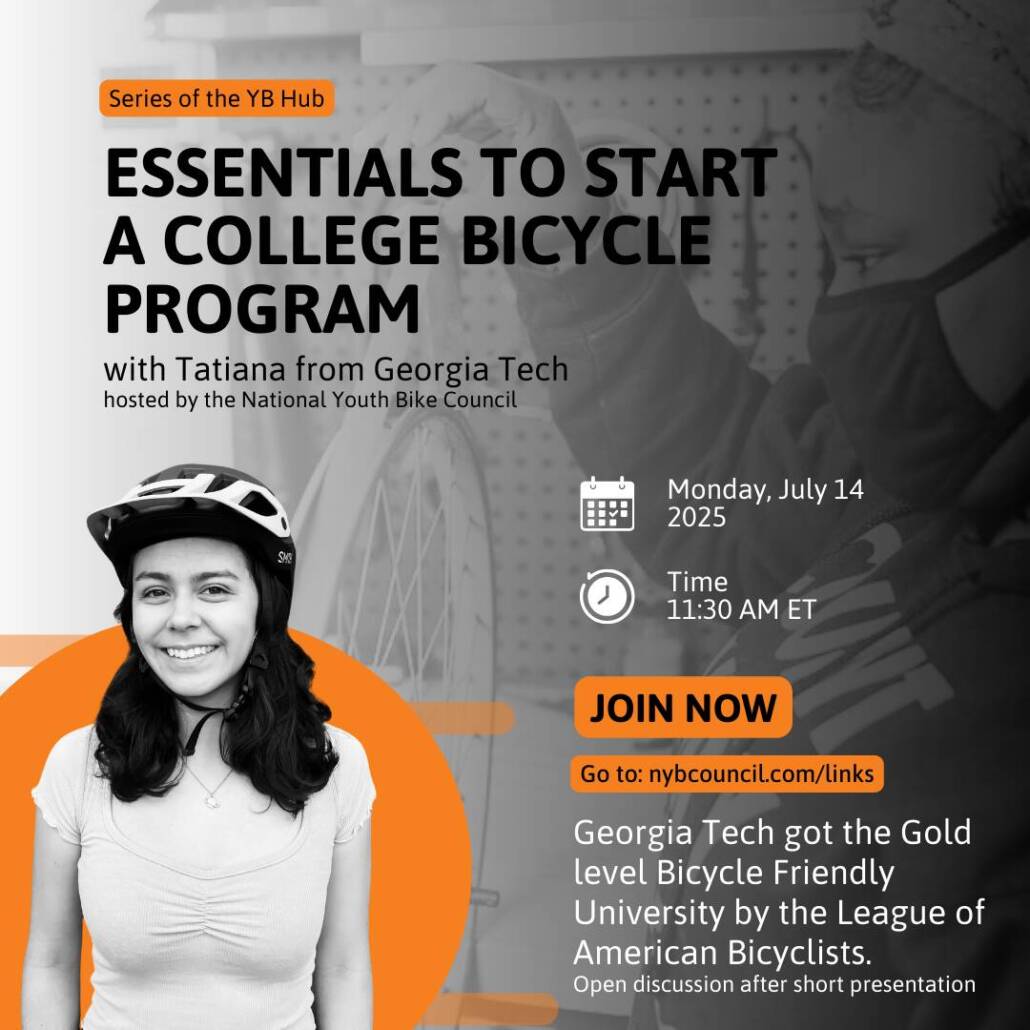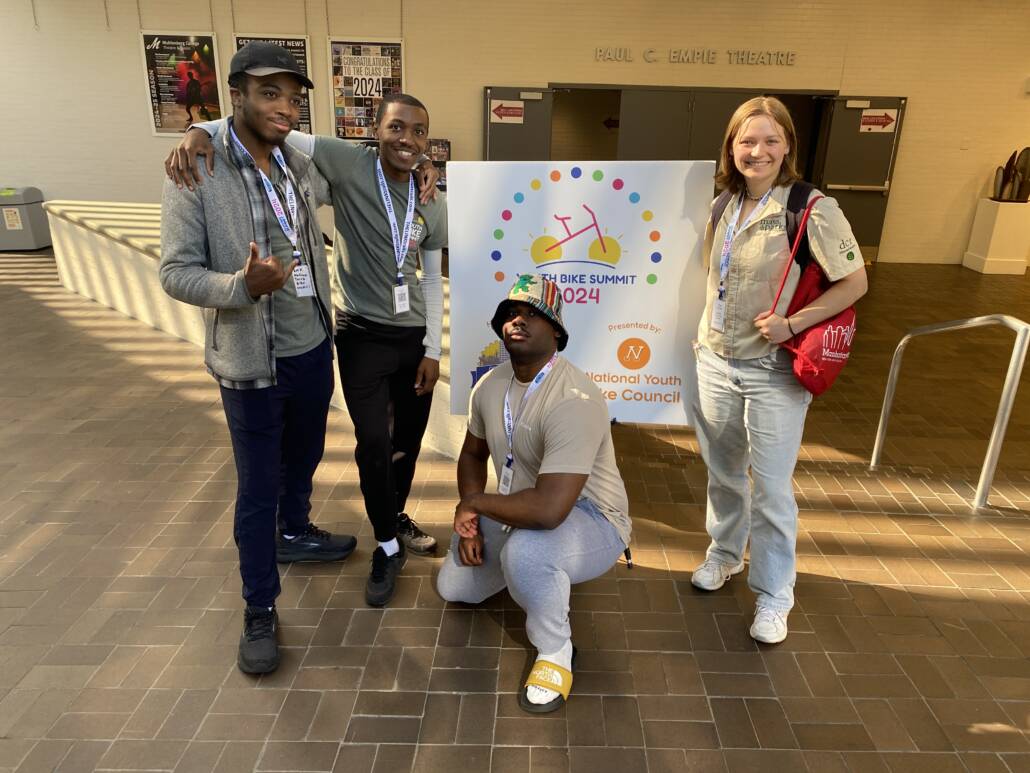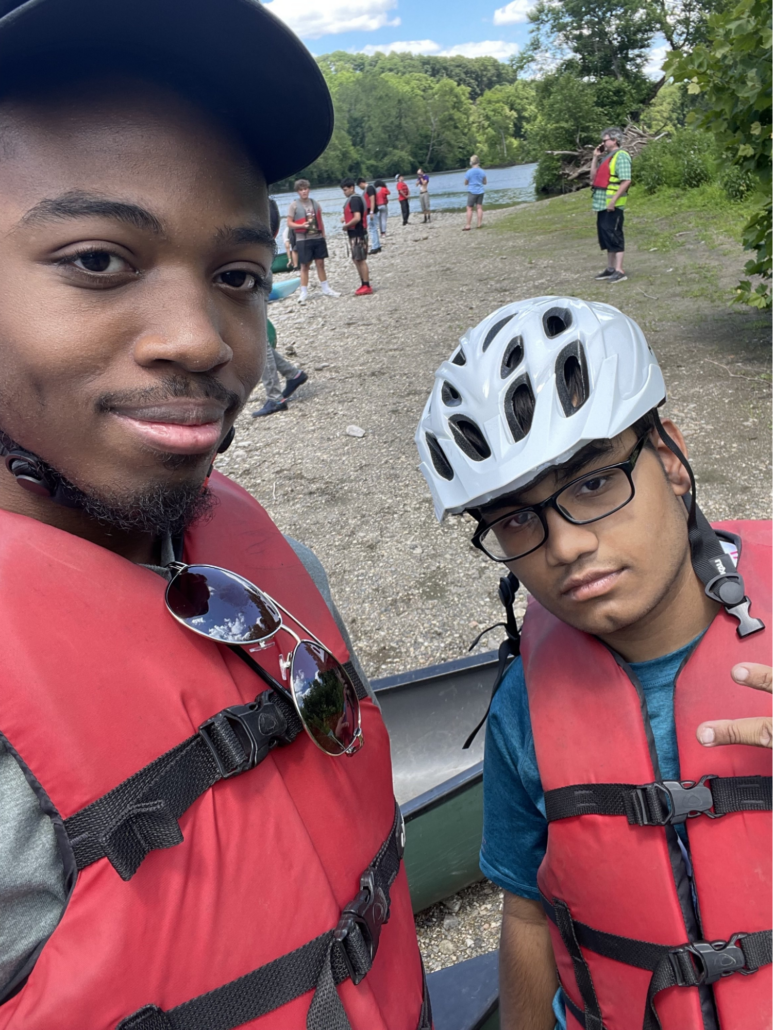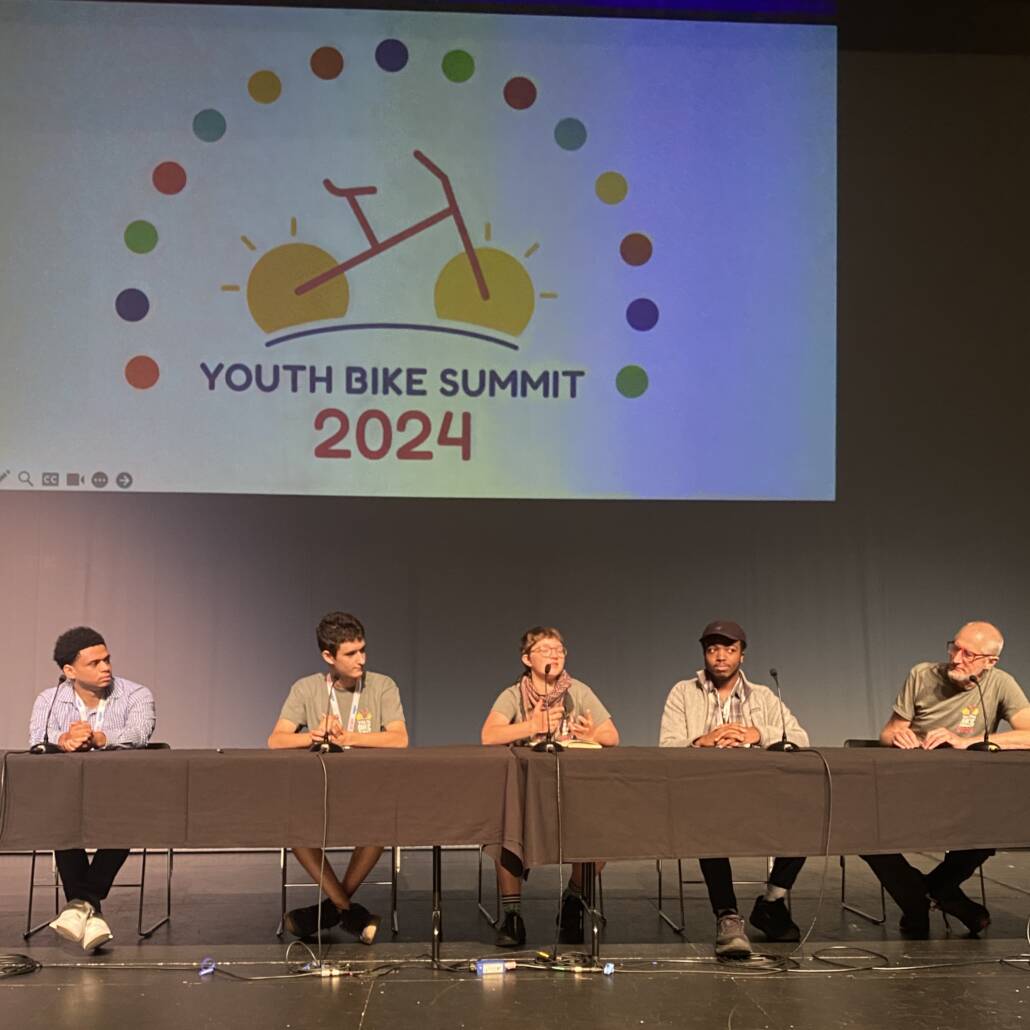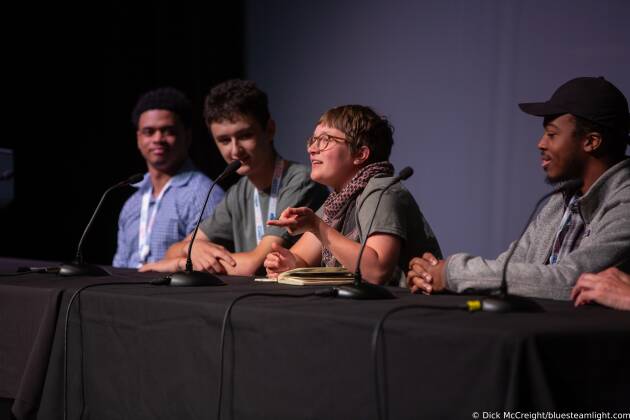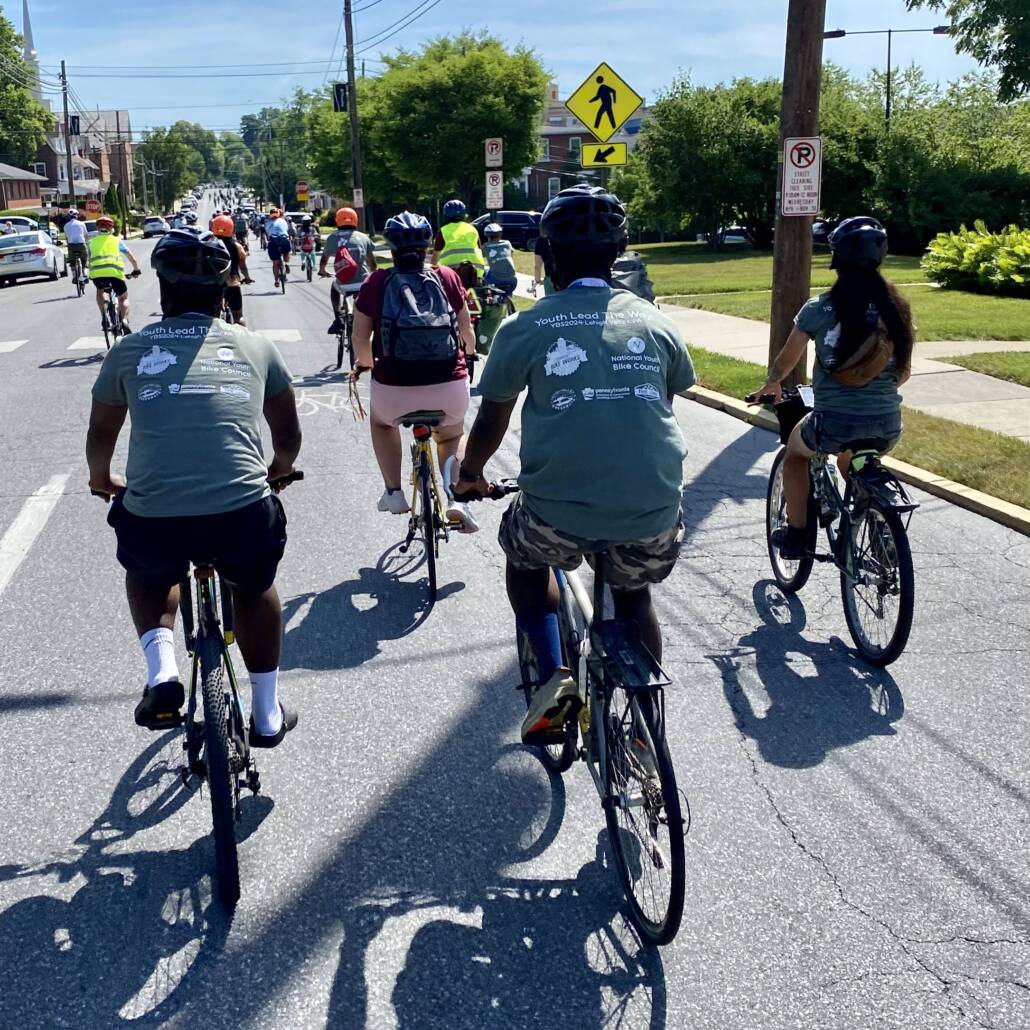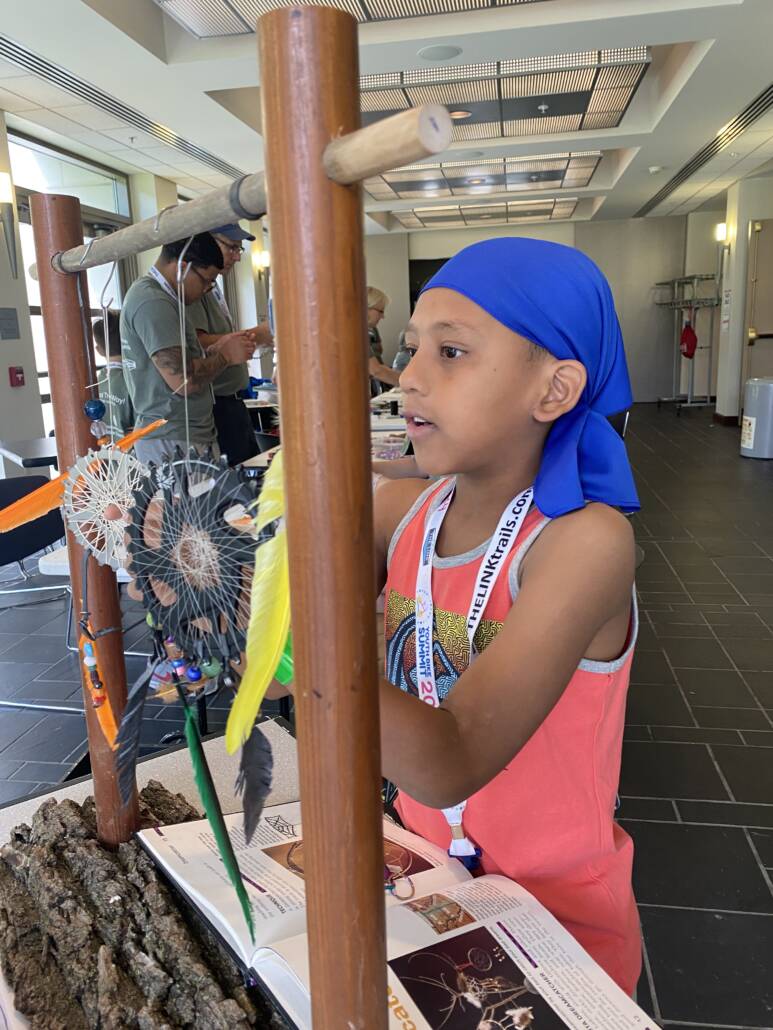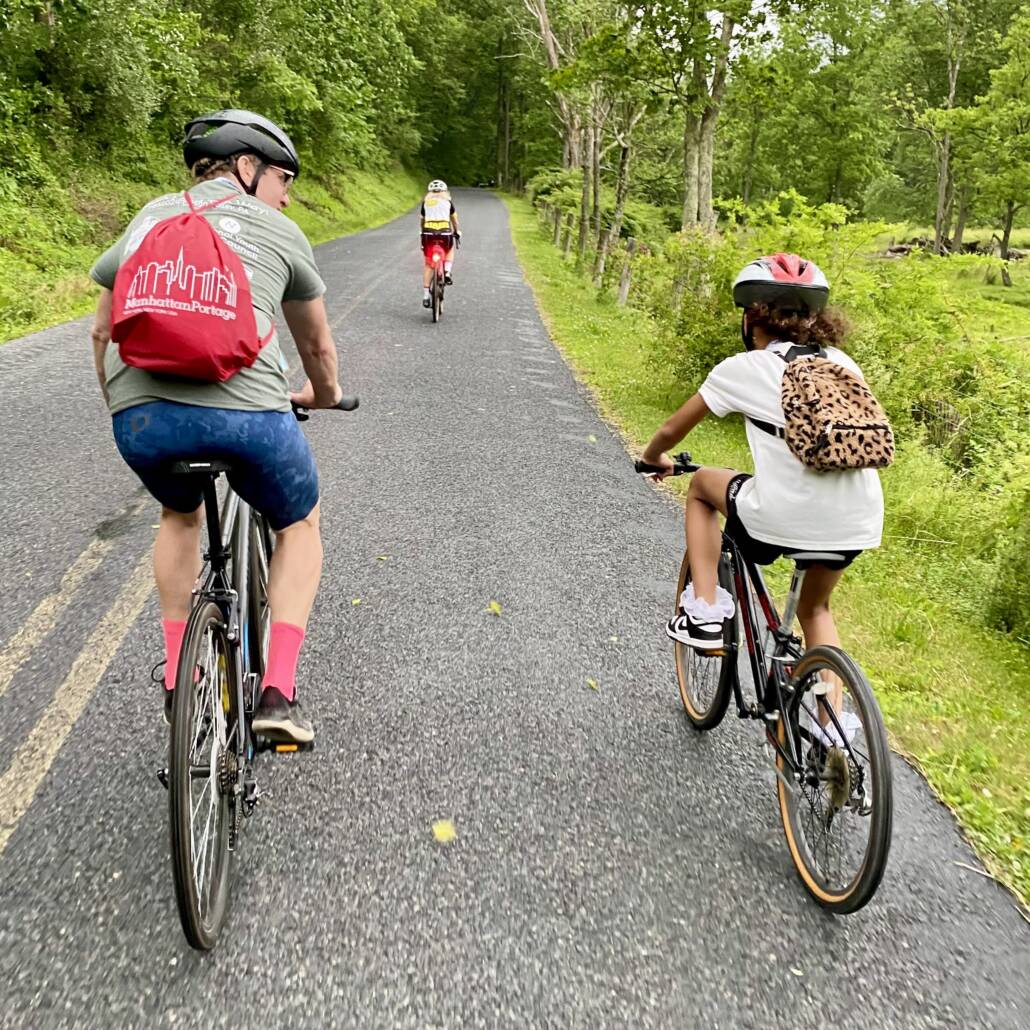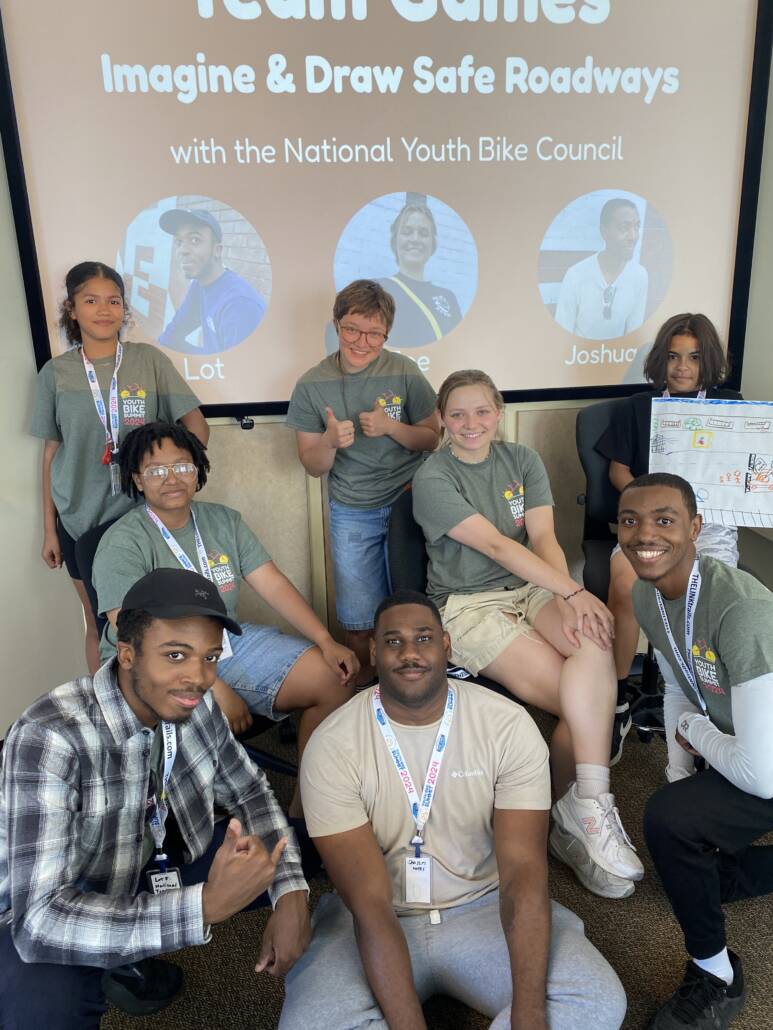Youth Bike Summit 2025: A Magical 3-Day Weekend
This guest post was contributed by Joshua of the National Youth Bike Council.
The Youth Bike Summit is a three-day conference, held every year since 2011 (except in 2020 and 2021). This year, the Youth Bike Summit turned 11 years old and came to Boston for the first time at the end of May. It created a collaborative space for young people and bicycle program staff members to meet and share ideas. Politicians, students, educators, and advocates gathered to cultivate youth leadership through bicycling, celebrate youth excellence, educate everyone on civic engagement, and much more. This year, the National Youth Bike Council partnered with co-host organizations in Boston, Mattapan Food & Fitness Coalition, and Bikes Not Bombs, to put on the Summit. Over 200 attendees from 52 cities and 17 states assembled in Boston to explore the power of learning through bicycling. 53.20% of them were youth (24 and under). Together, we explored how bikes are tools for joy, leadership, and justice.
Youth Bike Summit Highlights:
- 1,492.5 miles biked
- 53% youth majority in attendance (ages 24 and under)
- 200% increase in organizations represented compared to 2024
- 27 workshops over 3 days
- $16,947 saved in affordable housing for attendees
- 2 youth leaders honored
- 1 Big Bicycle Ride (and 7 other mobile workshops)
Breaking the ice
The event started on Friday evening and ran until late Sunday afternoon. Friday included icebreaker activities for the students to start the weekend with a new friend. This year, participants had UNO battles, Jenga matches, and chess duels. On the way in, attendees were greeted with an attendee goodie bag and a Youth Bike Summit 2025 edition shirt. They could show off their new items at the 360-degree spin camera or craft memory items in a makerspace provided for hands-on learning. This Youth Bike Summit also included a live singer, live musicians, and a DJ with dinner.
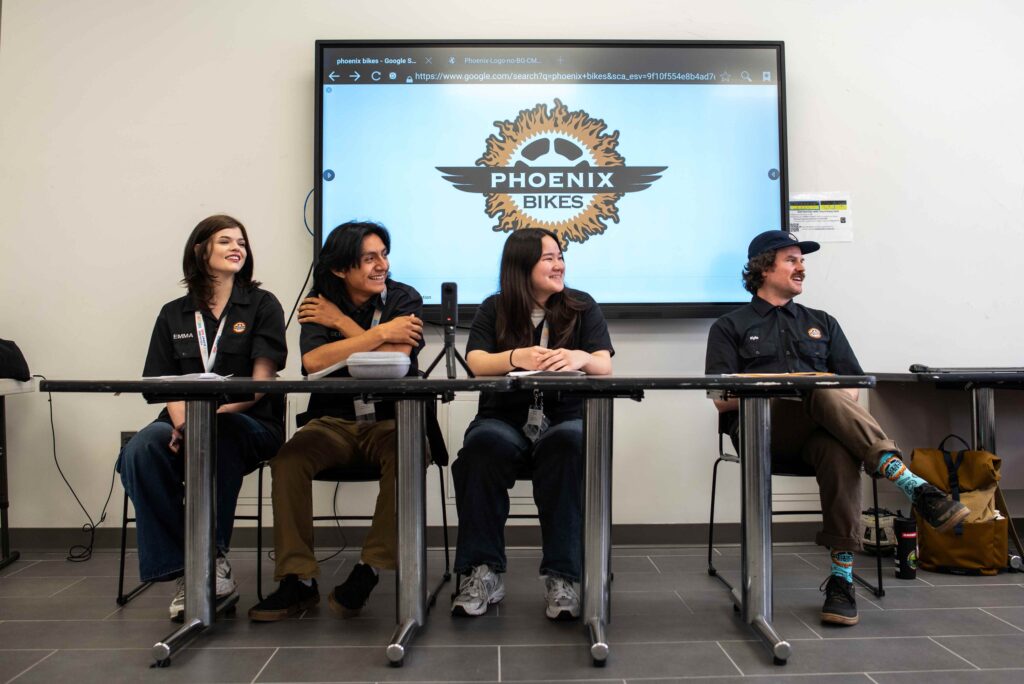
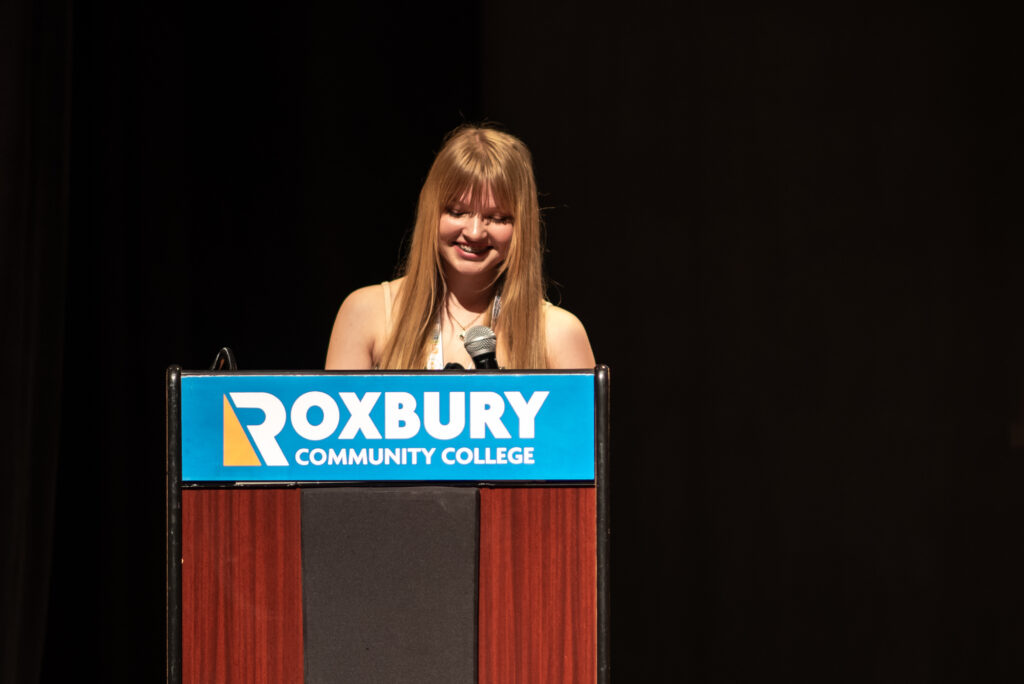
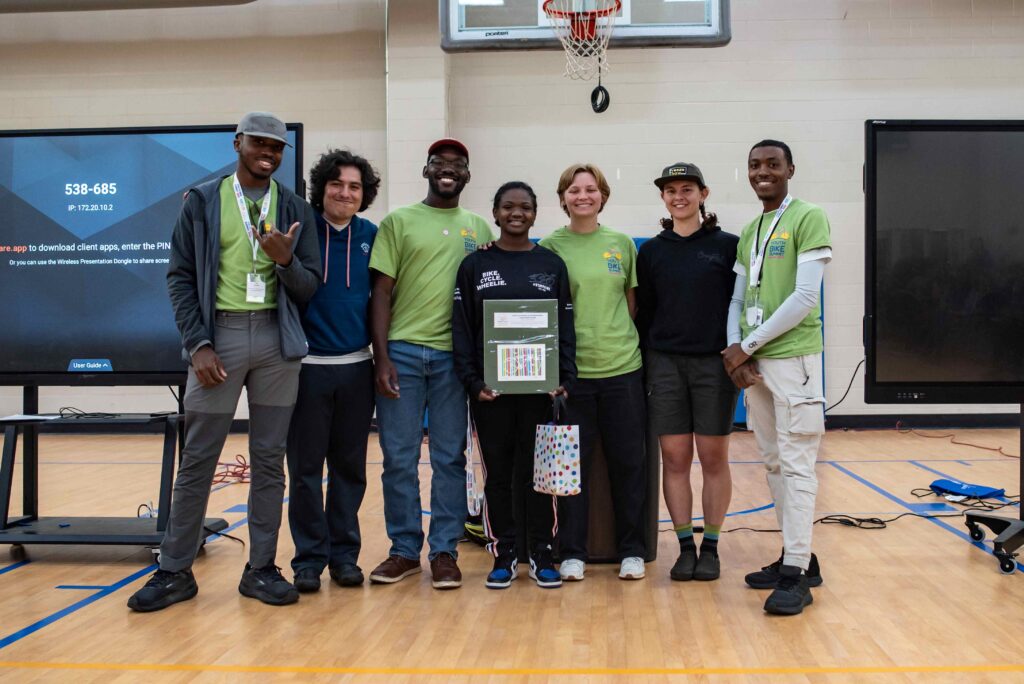
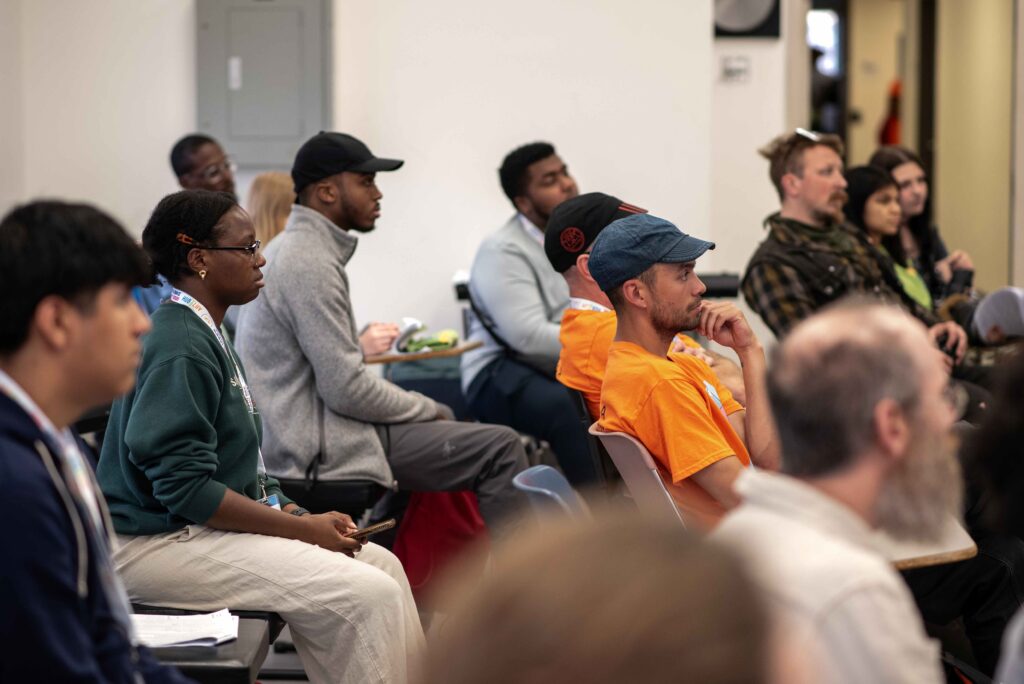
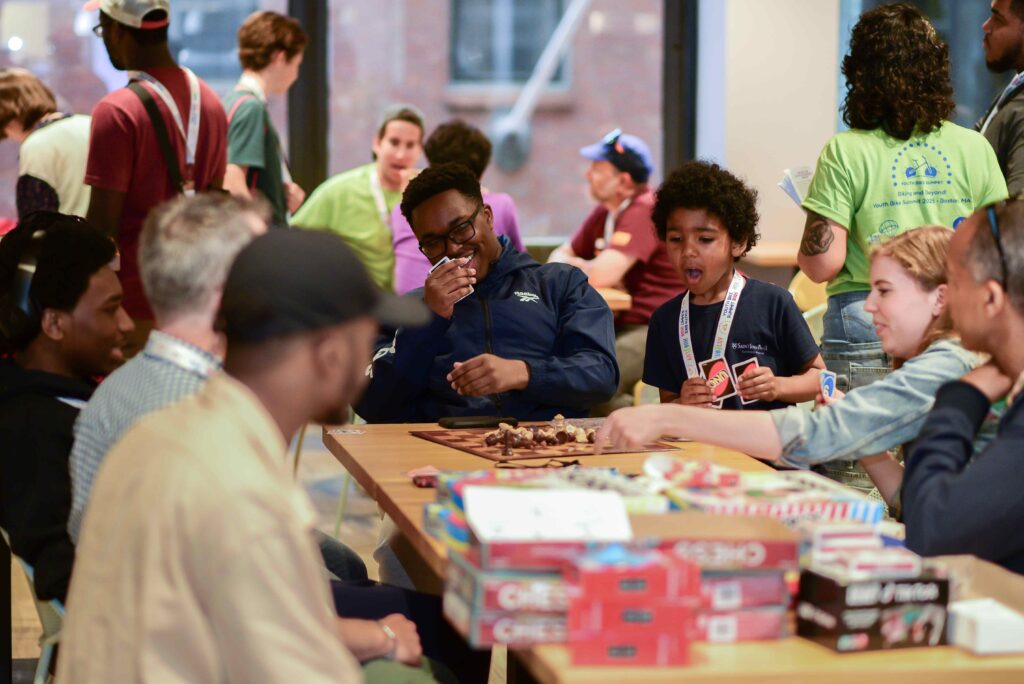
While Friday focused on camaraderie, Saturday focused on calls to action to the youth leaders and program staff at the 9 a.m. plenary gathering.
Massachusetts State Senator Liz Miranda gave a speech on how elected officials make a difference in the city and why speaking up is important. “Don’t forget to engage with your political leaders,” Miranda said. She finished by saying, “If your communities are not safe, if it’s not a healthy community, like the one I grew up in. You have the power to use your voice and to tell people that I am somebody that matters, and I live in your community, and I want a change.” This message was mirrored by National Youth Bike Council members Lot and Pablo, who led the crowd through chants of “Beyond the Bike!”
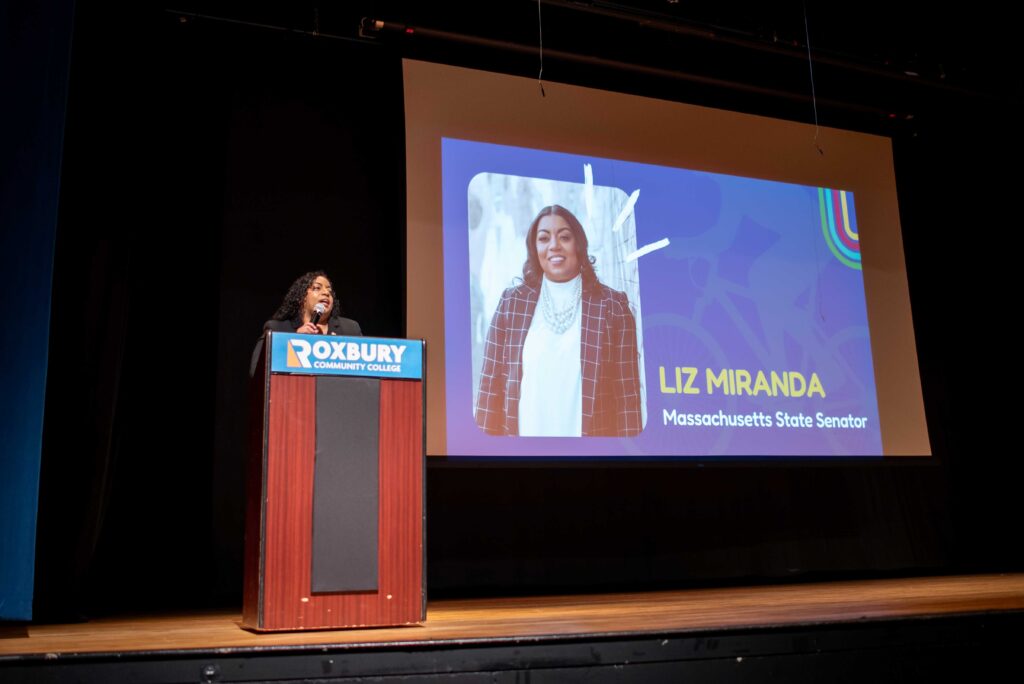
One of the staples of the Youth Bike Summit is peer-to-peer encouragement and the opportunity to inspire the next generation with the stories of today. Anika P, the youth keynote speaker, a college sophomore from Massachusetts, shared her story. She discussed reviving a bike club at her school and how that led her to eventually speak with her state senators and representatives on bike safety awareness and legislation to make roads safer for bicyclists.
Vivian Ortiz, Boston’s first “bike mayor,” also joined the leaders of the host city and the National Youth Bike Council members in celebrating the distances that individuals have traveled to get to the event during the plenary.
Everybody Learns at the Youth Bike Summit
Presentations were on the theme of “Beyond the Bike.” Learning sessions included information on bike mechanics, bike art, group rides, environmental justice, and bikes on campus. Attendees could participate in mobile workshops, including a tour of the Neponset River Greenway, and there was a big group ride on the last day. Participants talked about learning to fix bikes through an internship program for high school students and the challenges of running programs like that.
Not all mobile workshops featured bicycling; some captured the essence of staying active while educating. For example, one mobile session challenged participants to experience safety through a new lens as they evaluated crosswalks and pedestrian behavior.
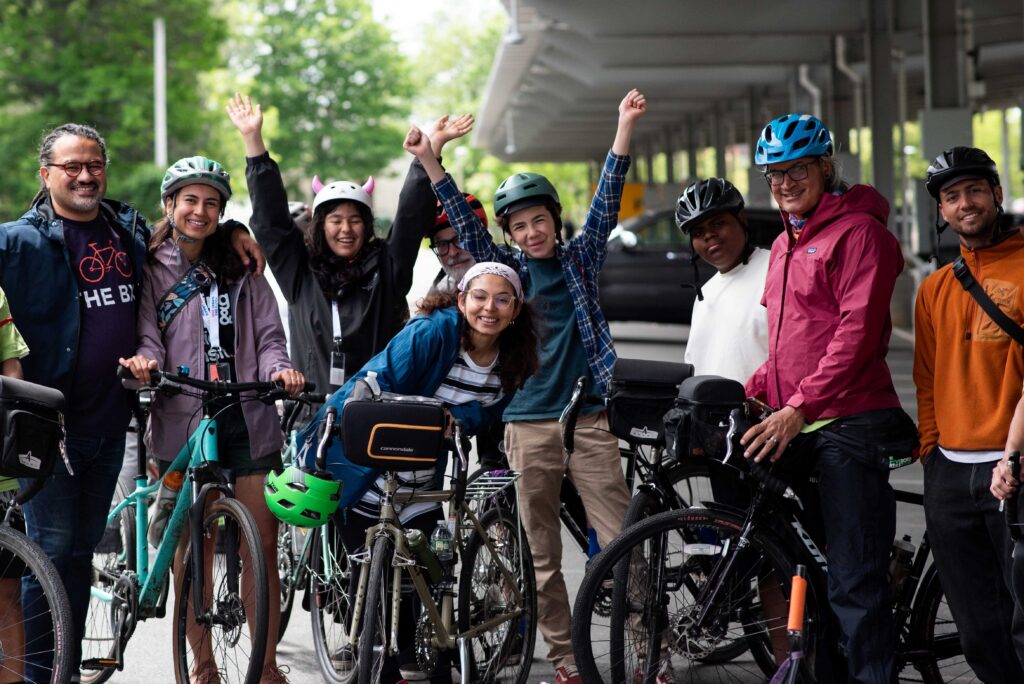
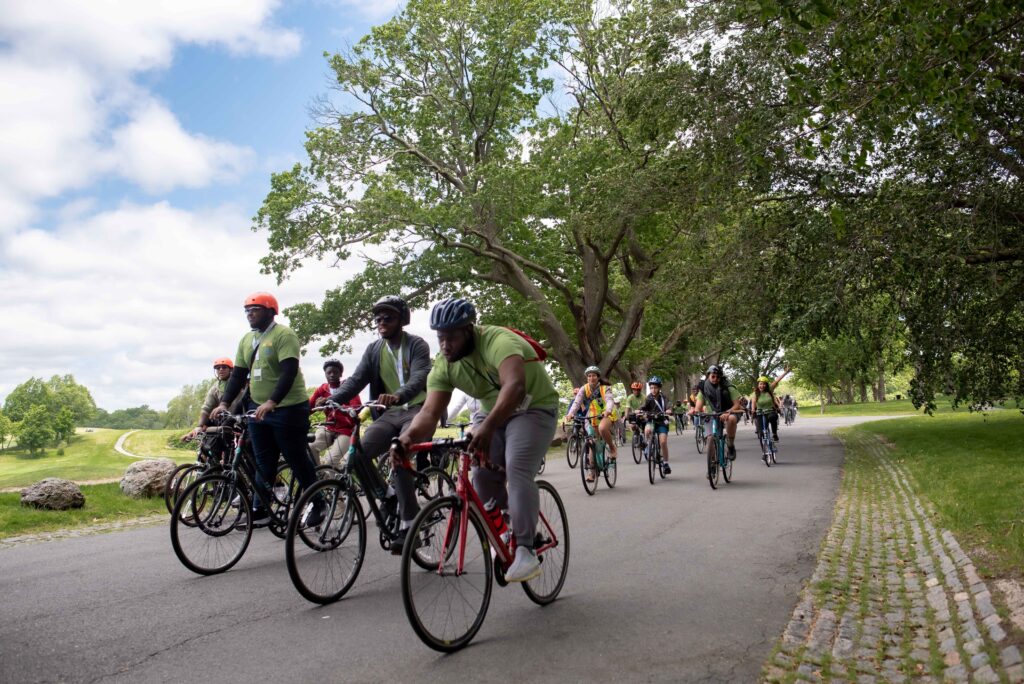
One Big Ride
On the last day of the Youth Bike Summit, everyone gathered for a huge bicycle ride, which included local riders from Boston Critical Mass, who helped lead the ride and showed off what Boston biking has to offer. The 10-mile ride through Boston started at Roxbury Community College, headed toward UMass Boston, continued through Franklin Park, and finished at Roxbury Community College. The ride was a joyous event, with riders shouting good morning to neighbors in passing, ringing their bells, and cheering at large intersections.
After the ride, the Youth Bike Summit ended with a visioning session. This year’s visioning session included speakers Alison Dewey of the League of American Bicyclists and Jose Masso, the Chief of Human Services for the City of Boston. Both speakers expressed support, offered motivation, and shared resources for staying involved in bicycling and community organizing.
We deeply appreciate our sponsors, who are responsible for helping create an affordable and rewarding experience at the 2025 Youth Bike Summit. We are glad to credit the following organizations in helping gear up the next generation of youth leaders: Hub Luv (The Title Sponsor), Lawson Valentine Foundation, Boston Children’s Hospital, SRAM, The League of American Bicyclists, Toole Design, Transportation for Massachusetts (T4MA), Piscitello Law, Invest in Women Entrepreneurs, and Velocity Bicycle Cooperative. We are extremely thankful to our partners who helped craft the 2025 Youth Bike Summit experience: Manhattan Portage, Cycling Out Loud, Helmet Flair, and Redshift Sports.
We can’t wait for next year!

